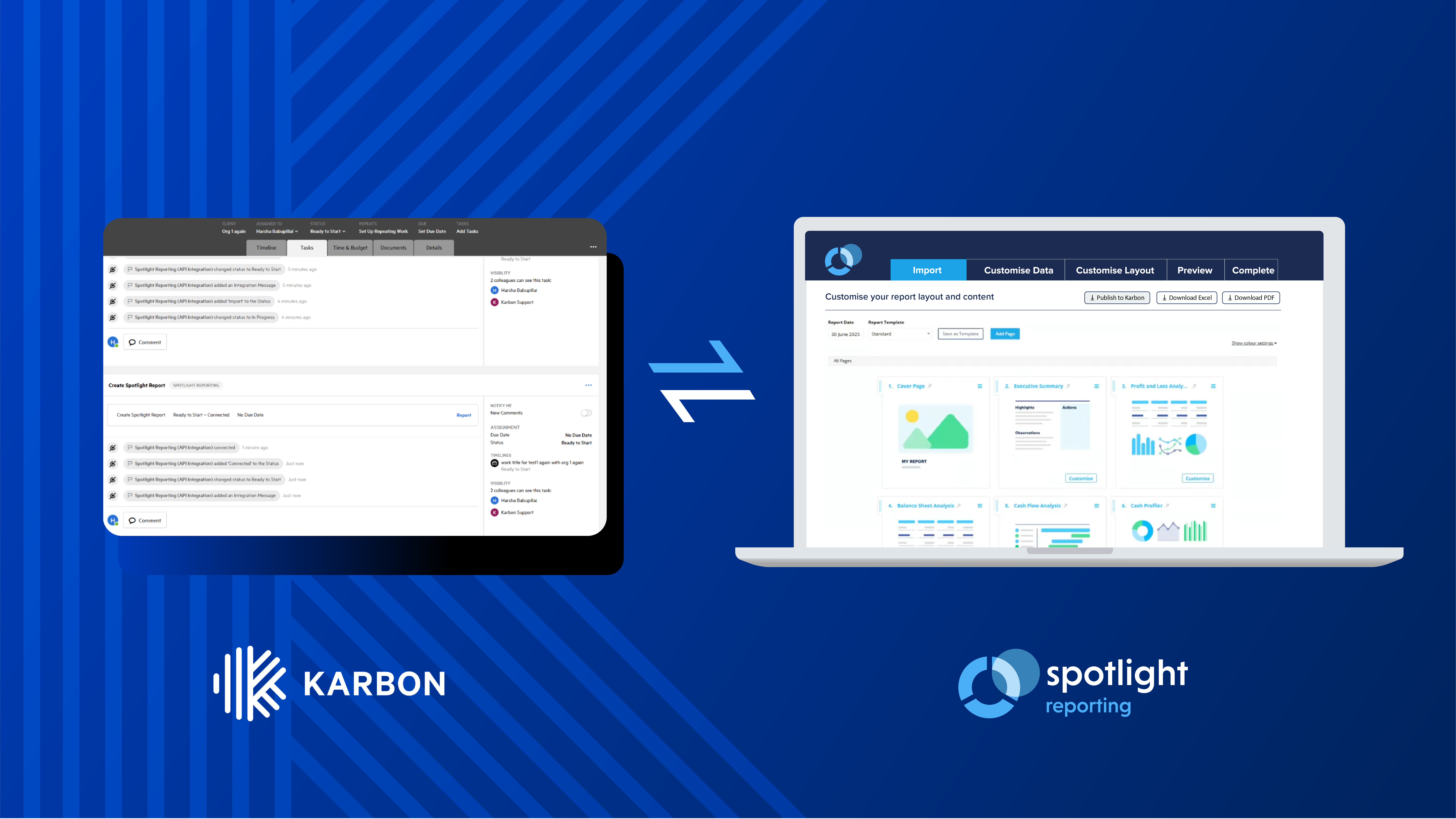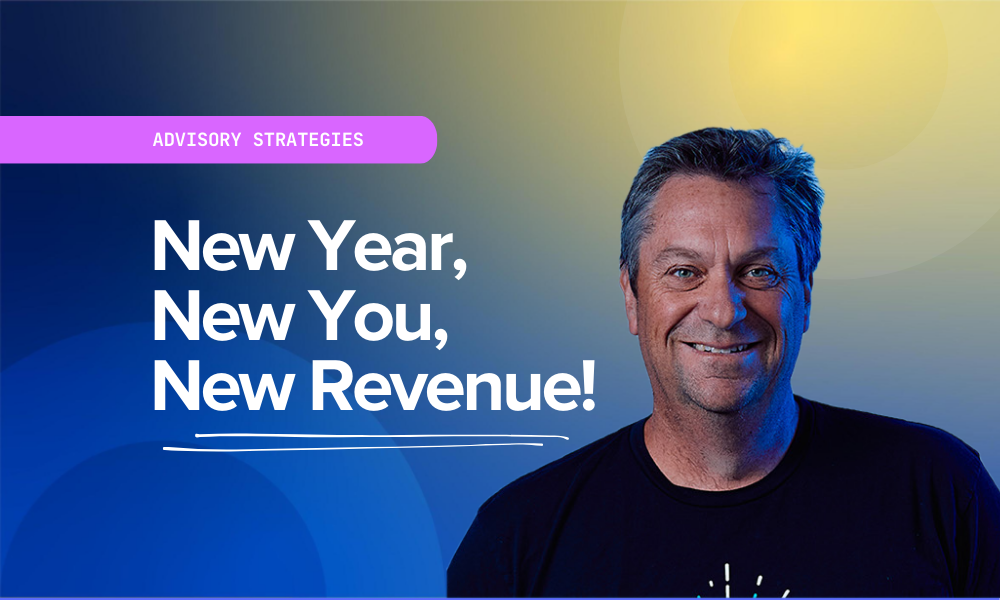Richard Francis, the CEO of Spotlight Reporting, is an incredibly approachable person. It’s always intimidating to interview people from the upper echelons of a company, but any nervousness on my part dissipates as soon as we start talking. He’s a mixture of warm and to the point, business-minded and people-oriented, able to convey exactly what he means both deftly and precisely. This comes in handy, as we don’t have long before his next meeting.
He takes a few moments to enquire after me before we begin, and whether or not I’ve enjoyed working from home. This is typical of his style of management—he has a genuine care for his employees and their welfare. Beyond Richard, I can see a bright window seat, decorated with a variety of throw pillows. Today he’s wearing a t-shirt and hoodie, both a Spotlight Reporting shade of blue. I wonder if this is on purpose.
Richard Francis, CEO and Founder of Spotlight Reporting: a man with a mission

The beginning
We begin the interview with what I thought was an easy question: why did you become an accountant?
“That’s not super easy,” he says, “because I didn’t want to be an accountant. In fact, l was an accidental accountant.”
Richard comes from a family of accountants. His older brother was an accountant, and his father was a partner in an accounting firm, so he knew from young how much work and effort the occupation entailed. The industry was also too traditional for his taste, so he tried to avoid that path by enrolling in an Arts degree.
“I was actually much more interested in Roman History and Classics and Modern history,” he says, “still am.” Even so, he decided to do Commerce, because “I wanted to be employed when I left university.”
Back in the early 90s, the slight recession meant that there were only two common career paths: becoming an accountant, or a lawyer. After graduation, Richard applied for a job at an accounting firm, and began his working life as an accountant, despite his aversions.
“I don’t think there’s many people, in fact I’m really suspicious of people who go, yeah I really want to become an accountant,” Richard says. “Usually, it’s ‘I want to be an astronaut’, or ‘an All Black’, or ‘a Black Cap’.”
What changed his mind about the industry however, was the fact that he found himself on the frontlines of business, helping business owners succeed, and had the chance to really make an impact. This realisation would guide his career path for the rest of his life.

The GFC
After some time spent as the lead for the consultancy services of a large accounting firm, Richard and his wife Julie left their roles to start their own practice. Their boutique firm focused on advisory services, as well as compliance, as this was where they found the most value for them and their clients. It was during this period that the GFC hit.
“Unlike now, the recession took a while to hit,” he says. “It was a long, slow slog. Businesses started to go out of business, unemployment crept up, it was harder to raise capital. It really put a spotlight on what so many businesses were doing, or not doing.”
Under the banner of their practice, Francis Consulting, Richard and Julie focused on a holistic approach for their clients, including accounting, strategy, and mentoring. What they found was that it was not just a time of crisis, but a time of opportunity for businesses to increase the relevance of their offerings, and push themselves out ahead of the competition. This is what they did with their own business, as well as what they encouraged their clients to do.
“It’s stressful, running your own business when you have clients who are struggling,” he says, “but there’s also a lot of satisfaction. We helped a lot of businesses in profound ways, to reduce debt, improve cash flow, develop and deploy strategically—and to come out stronger on the other side.”
As for advice on working through a recession, Richard is a firm believer in the power of cash flow.
“Businesses don’t often live or die on profit alone. The old saying, ‘profit is an opinion, cash flow’s a fact’, is very true in a crisis. There’s all sorts of accounting jiggery-pokery you can do to get the numbers to look the way you want, but if the cash isn’t coming in, it can all be over really quickly.”

Spotlight Reporting
Today, Richard’s main role is as the founder and CEO of Spotlight Reporting.
“We saw an opportunity with Xero. ‘Make accounting beautiful’, that was their catchphrase,” he says. “The opportunity to work with them and other great companies like Intuit and MYOB, doing the important bits and pieces that they didn’t do or weren’t focused on, is where the product vision came from, for Spotlight Forecasting, Reporting, Dashboard, and Multi.”
With this vision as their foundation, Richard and Julie made the transition from small boutique firm, to start-up SaaS company in 2010, launching at the second ever Xerocon in 2011.
“There were no software partners at the first Xerocon in Napier,” he tells me, “and we were one of the originals at the second one in Taupo. Asides from us, there were only four other Xero ecosystem software partners present, of which only a couple have survived. Now, there’s over 800 software partners. We’ve mentored a few, and stayed in contact with some of the leading players.”
Spotlight Reporting is now a global company, with offices in New Zealand, Australia, the US, and the UK, and a team of 50 staff. Richard’s time is split between managing the business and its strategy, and developing the product, in charge of the vision, direction, and high-level roadmap. He is dedicated to building the tools that accountants need, and earnest in his promotion of advisory services and cloud technology for the betterment of the industry. It’s his and his staff’s accounting background, he says, that sets them apart from their competitors.
“I think we have credibility because we can speak the language, we’ve run our own accounting businesses, we’ve been in the trenches, we’ve been employees at practices,” he says. “We have a constant daily dialogue with the accounting fraternity. Some of our competitors don’t have that DNA or understanding, and therefore create their products in a vacuum or as copy-cats.”
Company culture has a huge part to play in the businesses’ success as well:
“From the Board right through to the newest hire, we try to instill a culture of contribution, not only amongst teammates, but also to the community in which we operate, and obviously to our accounting ecosystem,” says Richard. “A lot of companies talk about that, but don’t necessarily do it.”

The accounting ecosystem
From the early days of a handful of accounting software companies, to the thousands currently operating in the industry, a lot has changed since Spotlight Reporting’s launch. But the supportive nature of the community has remained the same.
“We have good relationships with Chaser, Float, Capitalise, Receipt Bank, Practice Ignition and many others,” Richard says, “and from the CEO level we’re all quite supportive of each other.”
There’s a sense of a journey in Richard’s story, not just his own, but that of the accounting industry at large. With the creation of Xero, the community has become more tight-knit globally than ever, with much potential for growth and collaboration. The various industry events that have popped up over the years have served to strengthen professional ties and relationships, creating a network spanning the globe.
“I’ve been to about 22 Xerocons, four or five Quickbook Connects, and these are huge events with 3000-4000 people from all around the world,” says Richard. “We just feel part of something that’s transformed an industry. Knowing that we’ve contributed as the number one reporting and forecasting add on, having consistently been in the top five or top ten most used partners for those companies, we’ve made a bit of an impact. I’m proud of that, quietly.”

In his spare time
Outside of work, Richard Francis is very much a family man. As the conversation moves away from the business and into his personal life, he retains the same level of enthusiasm talking about his family.
“I’ve got a teenage daughter and ten-year-old son, which means that any time I’m not working is gobbled up by what they’re doing,” he says. “I was a cricketer, my daughter’s a top cricketer, and my son is coming up through the ranks as well, so I’m involved with helping Cricket Wellington develop the female game in particular at the moment. I coach the school team, Julie manages the school team, and every weekend in summer and beyond is cricket.”
As for his other interests?
“I love history,” he tells me, “and I love reading. I’ve always got several books on the go when I get time to do that. And I spend time with my parents as well, who are quite elderly. They love catching up with me, gossiping, talking about anything and everything.”
It’s his parents, in fact, who are mostly responsible for his trajectory in life.
“My ‘Why’ is to have a positive impact,” says Richard, “and I’ve really learnt this from my parents. They were both very strong contributors in the community, giving their time and their ideas to a number of different initiatives.
“So whether it’s Spotlight Reporting, helping transform an industry along with our accountant and other ecosystem partners, or chairing the local school board, or the other things I’m involved in, I want to have a disproportionate impact. I’m a strong believer that every individual can and should leave a positive legacy in their local community, whether it’s in business, education, charity, or whatever it happens to be.
If we all did that, what a wonderful society we’d live in.”
This piece is part of our series, “Designed By Accountants, For Accountants”, highlighting some of the key players that make up the accounting DNA of Spotlight Reporting. Their experiences created and influenced the biggest reporting tool in the ecosystem created by accountants.








.jpeg)






